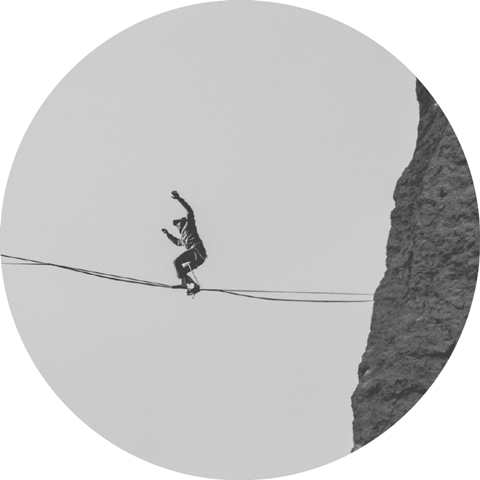Cathy Madavan shares the methods that have helped her avoid paralysis from too much choice
It’s embarrassing to admit, but I am a woman who reads about 350 reviews before buying a kettle and, even then, I’m never sure I’ve made the best choice. I have been known to chase waiters after eventually choosing a meal in a restaurant, because I want to change my mind…again. It’s the ‘paralysis of analysis’ issue – there’s just so much choice, and I want to make the right decision. And folks, if I’m like that about a kettle, just imagine me researching a school for my kids, choosing a new house or deciding when to have a difficult conversation. So, while I have made some progress in this area, you will have to decide whether the following ideas are helpful or not!

1 Externalise the issues
Have you ever entered a brain loop, circling around an issue or decision over and over again? You get stuck, endlessly imagining consequences, talking yourself into or out of certain actions along the way. In my experience, the best way to interrupt this cycle of doom is by writing or talking about it. By creating vocabulary around the issues and laying out the pros and cons clearly, we somehow declutter the messiness in our mind, and create space for solutions to emerge. So, take time to externalise what’s in your brain in order to get some clarity.
2 Clarify your feelings
Somebody recently shared with me how they made a serious life decision based on the flip of a coin. A bit haphazard you might say, but actually it was deeper than that. He was told by a friend that ‘heads’ meant he moved jobs and ‘tails’ meant he didn’t. When it landed on ‘heads’ his friend asked how he felt. Effectively, he was visualising the decision as if it had happened and imagining his reaction. He realised he would be really pleased if it was ‘heads’ and disappointed if it was ‘tails’. Noticing our feelings and gut instinct is significant. While this might not be the only or deciding factor, it’s still important.

3 Don’t rush it
Sometimes we do have to make an instantaneous choice and in such situations will have to trust our guts and experience. But, whenever possible, I’ve learned it is best to pause and sleep on decisions. We generally make better choices if we ask for some time to reflect, get some advice, let our feeling subside and think about the issues further. So, ideally, don’t jump to a yes or a no, and don’t send the email too fast. Have a ponder first.
4 Get some perspective
A naval engineer once told me about his decision-making process. He said he always asked himself two questions: “What’s the worst that could happen?”, but also: “What’s the best that could happen?” He then considered what actions would lead away from the former and towards the latter! Working back from both of these extremes is so helpful. The chances are, the issue is not normally life and death and, actually, a wise choice could open up some wonderful possibilities.
5 Life is not a tightrope
I remember watching a fantastic circus performance where somebody walked across a perilously high tightrope. One step either way and they would have plummeted into the net below. I used to treat discerning God’s will like that tightrope, imagining I must get it exactly right or I would fall off and miss out on God’s best. But, increasingly, I’m not convinced that God micromanages every tiny step. I’m reminded of Isaiah 30:21, which says: “Whether you turn to the right or the left, your ears will hear a voice behind you, saying, ‘This is the way; walk in it.’” If we are walking with God, then we can trust he is always with us, will gently guide us, and, even if we do seriously mis-step sometimes, he will always catch us. So, let’s step out in faith and pray as we go, because trusting Jesus is the best decision we could possibly make!



























